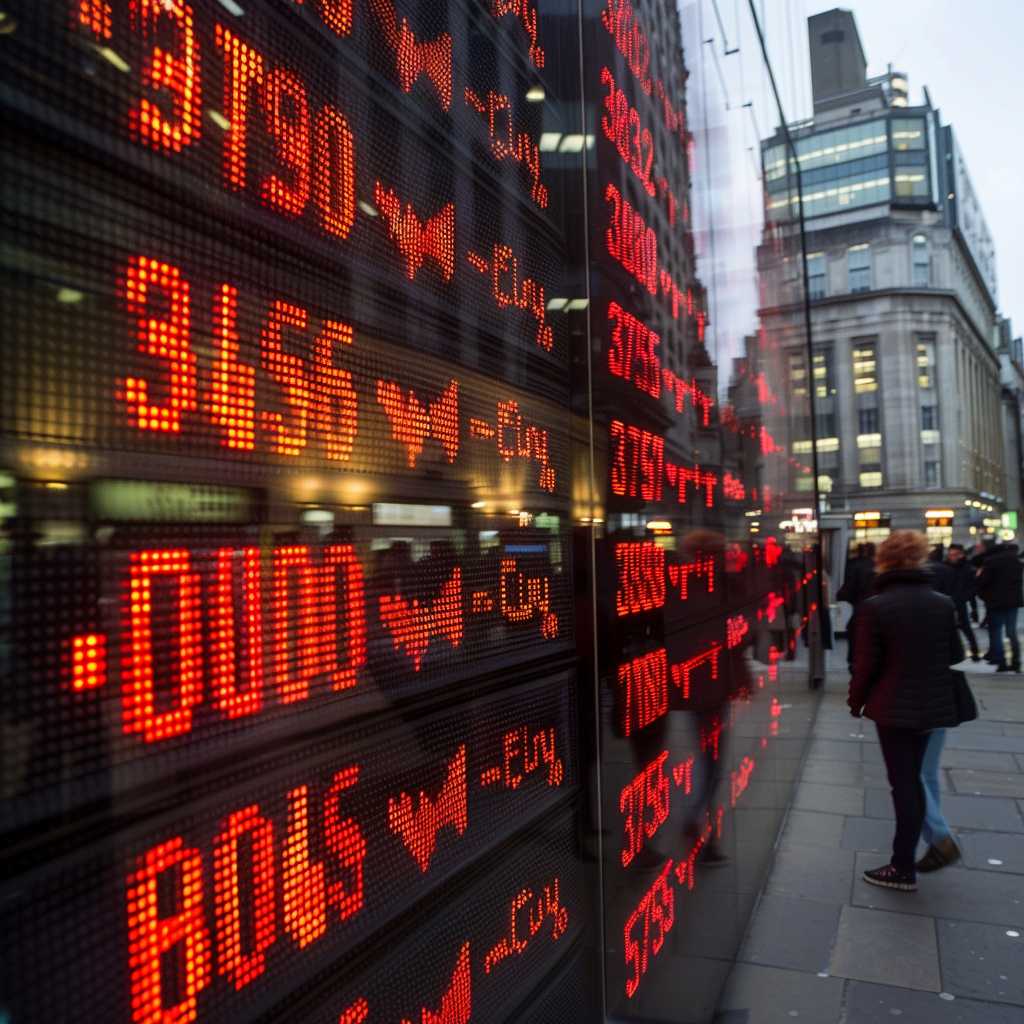The FTSE 100: A Barometer of the UK’s Financial Health
The FTSE 100 Index, colloquially known as the “Footsie,” is a stock market index representing the performance of the 100 largest companies listed on the London Stock Exchange (LSE). As a barometer of economic and business conditions in the United Kingdom, it is widely tracked by investors, analysts, and economists to gauge market trends and investment opportunities. In this comprehensive article, we’ll explore the composition and functioning of the FTSE 100, its history, significance, and impact on the economy.
Understanding the Composition of the FTSE 100
The FTSE 100 is made up of a diverse range of companies from various sectors, including banking, mining, pharmaceuticals, oil and gas, telecommunications, and consumer goods. These companies are selected based on market capitalization — the total value of their outstanding shares. The index is weighted by market cap, meaning that companies with a higher market value have a greater influence over the index’s fluctuations.
Eligibility to be included in the index is not simply a matter of being one of the UK’s largest corporations by market cap; there are other factors that come into play. These include meeting certain liquidity criteria, a significant proportion of shares available to the public, and adhering to overarching governance protocols.
Historical Perspective on the FTSE 100
The FTSE 100 Index was initiated on January 3, 1984, starting at an index level of 1,000 points. Since its launch, it has come to be acknowledged as the principal indicator of the UK’s stock market health. Its historical trajectory reflects significant economic and political events like recessions, booms in technology or commodities, financial crises, and more recently, Brexit and the COVID-19 pandemic. Historical data is critical for traders who use past trends to predict future movements.
Significance in Global and Domestic Markets
The FTSE 100 holds substantial significance domestically and internationally because it represents many companies that operate globally. While it is a strong indicator of UK business health, it also provides insights into global economic patterns due to the multinational nature of most constituent companies. As such, it often moves not just in response to domestic economic data but also shifts in global markets and international trade.
This dual role demarcates it as a somewhat unique index compared to others like the S&P 500 in the US which is more strongly linked with domestic affairs. Moreover, because several FTSE constituents deal extensively in foreign currencies, currency exchange fluctuations can affect profits and consequently share prices and index levels.
Impact on Investment Strategies
Investors often mimic the composition of renowned indices like the FTSE 100 as part of their investment strategies—a practice known as passive investing. Exchange-traded funds (ETFs) and index funds that track the performance of the FTSE 100 give investors broader exposure to the UK equity market.
Conversely, active investors scrutinize the index for understanding sector performances and weigh their portfolios accordingly. Additionally, options and futures are traded on FTSE derivative products providing betting opportunities on the future movement of the UK’s top corporates’ share prices.
FTSE Over Time: Trends and Changes
Considering its inception over three decades ago, FTSE has been modified regularly with companies joining or leaving based on their economic fortunes. Sectoral shifts have also been apparent over years—certain sectors like technology saw rising representation while traditional industries like steel or coal reduced due to historic realignments in economics.
Furthermore, these indices undergo quarterly reviews aimed at ensuring coherence between actual conditions and statistical representations. Some prominent adjustments have included big names moving out due to takeovers by overseas corporations or decline in business performance.
The Role in Retirement Planning
One vital aspect impacting individuals is how pension funds commonly buy into these conglomerates symbolized within the index. This happens because pension schemes view equity investments within blooming corporations represented in blue-chip indices like Footsie as avenues stimulating growth.
Corporate Governance within FTSE Corporations
Abiding by corporate governance standards is imperative for FTSE inclusion. Good practices ensure these major corporations engage in ethical behavior towards shareholders’ interests promoting transparent dealings—spotlighting why governance compliance remains critical not just on moral terms but as objective eligibility concerns too.
A Closer Look at Consumer Confidence Through Footsie Index
Often examined through statistical measures like unemployment rates or consumer confidence surveys – indices such as Footsie serve as alternate assessment tools delineating prevailing commercial robustness or pallor operable through stock price valuations showcasing societal fortitude partially through consuming power fluxes exhibited via investment changes.
